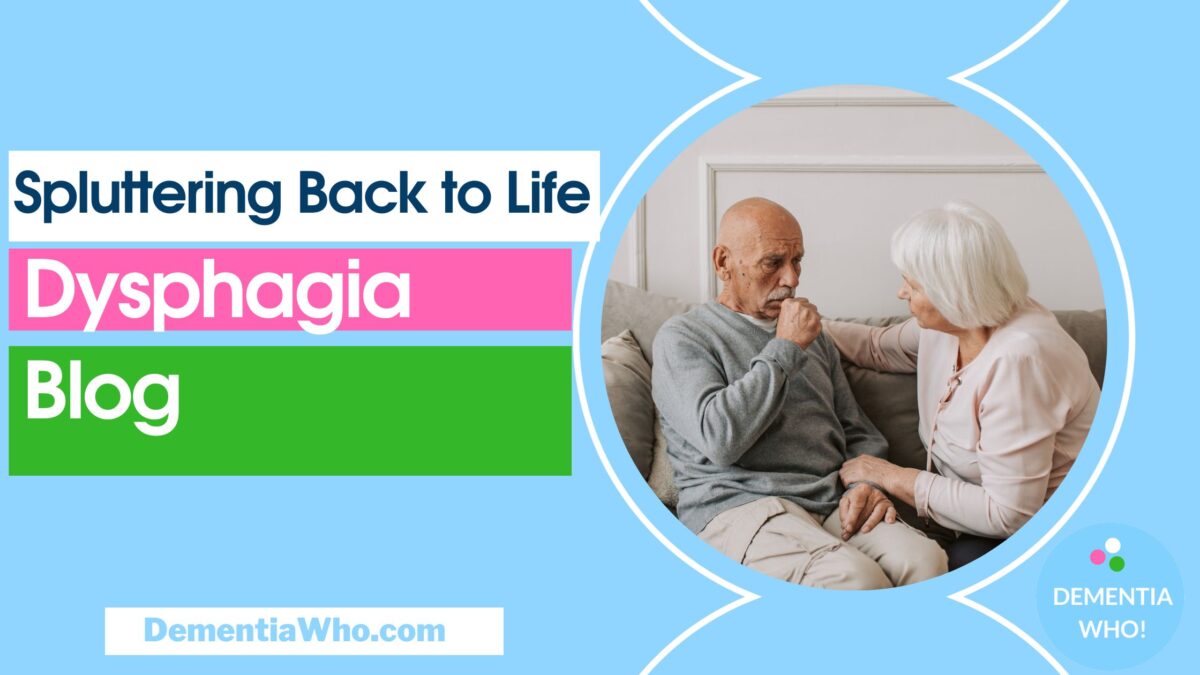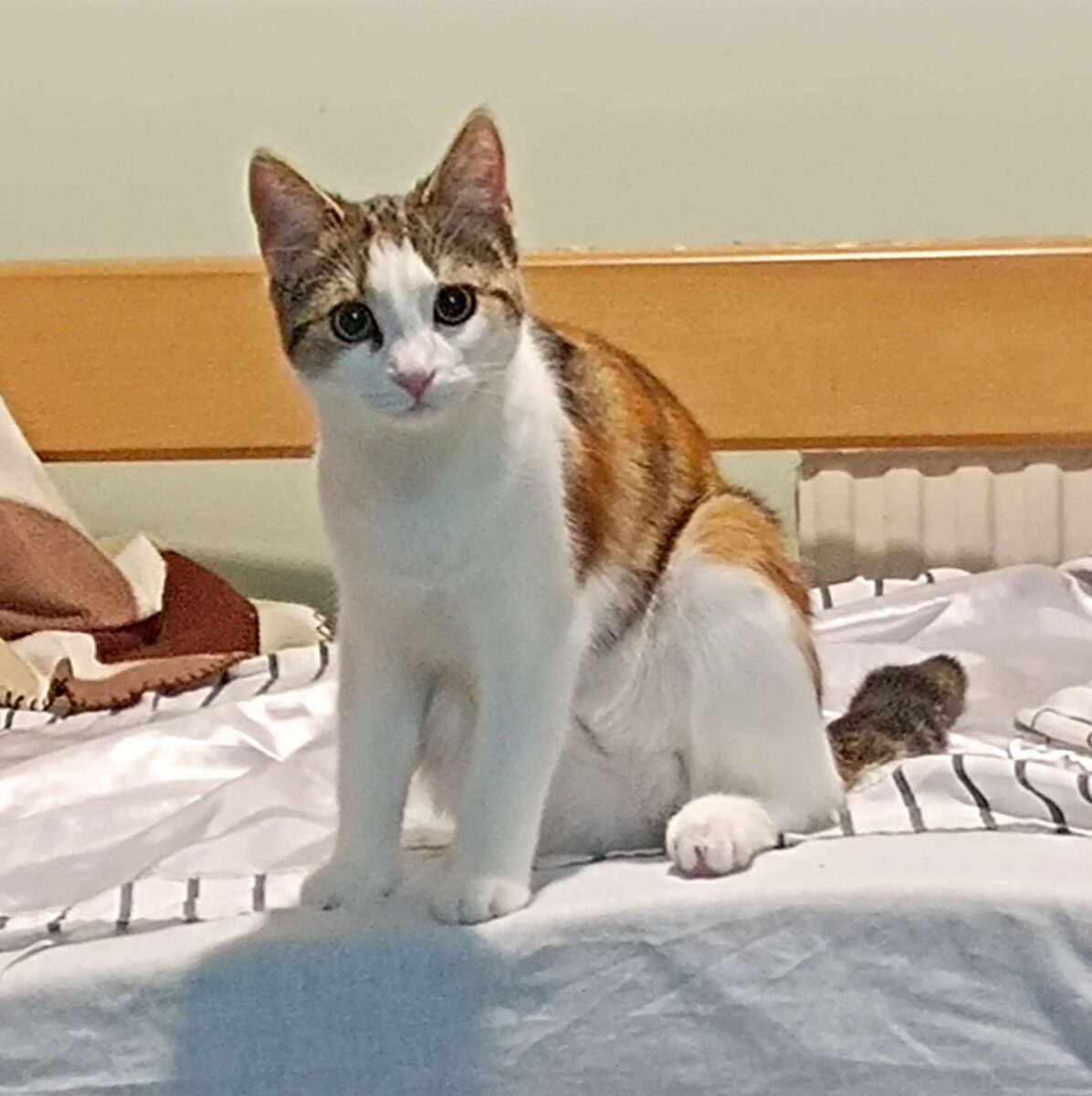We’re struggling, so I’m sharing the first steps of our personal journey navigating dementia and dysphagia.
I felt compelled to write this as I’m sitting here powerless, trying to help Mum as she coughs her guts out, spluttering, crying, unable to catch her breath and feeling like she’s going to vomit.
For the last few months, I’ve been navigating Mum’s dysphagia care. Dysphagia is when someone has difficulty swallowing, causing choking, coughing etc and is common in the elderly with dementia.
Just an FYI, dysphagia isn’t restricted to the elderly. It can affect people of all ages and can be a symptom of various health conditions.

Background
For those new to my blog, I’d like to welcome you and give you a short background. I look after my Mum with Alzheimer’s. Mum also developed a spinal condition at the beginning of her dementia journey, which meant that she was unable to walk or look after herself any more. I started this blog to document how we cope and share insights and tips from a dementia caregiver’s perspective. So this article focuses on our personal journey navigating dementia and dysphagia.
How the Dysphagia Symptoms Started?
It started with an infrequent cough after drinking something. Initially, I dismissed it as nothing or her asthma playing up (ironically, looking back, Mum has never had an asthma attack since I have cared for her). Then we thought it was just a cold, then a chest infection, but slowly you see the pattern, increasingly coughing more, not just when drinking but now when she’s eating.
Swallowing difficulties was the one thing that always scared me the most about dementia. The dangers of aspirating on food, getting recurring infections & possibly developing pneumonia terrified me.
I’d always read that people don’t die of dementia. They die of the complications that, for example, Alzheimer’s disease causes, as signals from the brain become weaker, impacting swallowing, eating, mobility, etc. I was terrified of Mum reaching this stage, and now here we were.
Doctor’s Referral
The first sign of needing the doctor was when she started coughing uncontrollably, and what was coming out wasn’t clear any more. Our doctors listened to her chest and prescribed antibiotics and a food & liquid thickener. This was a stop-gap measure as they also put in a referral to the Speech and Language Therapy team.
The Speech and Language Therapy Team, known as SALT in the UK, is the specialist team that helps families like ours to navigate dysphagia. They look at the whole picture: environment, positioning, swallow reflex, and other things.
In the last six months, we have had two video conference calls as the SALT therapist watched Mum eat and asked a lot of questions about triggers. She noticed straight away that:
- Mum eats too fast. Literally, she spoons more breakfast cereal into her mouth before even chewing the first lot.
- Mum was always talking with a “frog in her throat”, a wet, gurgly sound in the back of her throat. Mum couldn’t clear her throat unless she were coughing so violently that phlegm came flying out of her mouth or nose. She doesn’t have the breath strength to blow her nose forcefully enough to clear her nose, so she always has this wet sound in the back of her throat.
- Delayed coughing fit for Mum. It wasn’t always instantaneous whilst she was eating or drinking. It happened a few minutes later, which pointed to her holding fluid or food in the back of her throat.
SALT Therapist Recommendations
After the first meeting, they suggested slowing her eating down and adding thickener to not only her drinks but to her foods like cereals with milk, removing all distractions whilst eating and reducing the portion size to smaller sips or smaller bites.
We’d been working on this, but things haven’t improved. Mum is now having coughing fits multiple times during one meal or drink. It’s heartbreaking as she tries to gasp for breath, and I try to coach her through breathing through her nose, taking deep, slow breaths, all whilst she’s spluttering. We’ve since had a follow-up video conference call where we explained that the situation was worsening. For example, she was also coughing even after eating wet food with body, like Weetabix.
Current Situation
We are currently waiting for an in-home visit by the local SALT team, but resources are incredibly tight, so three months later, not much has changed as we wait for help.
As a dementia caregiver, I’m not just going to wait. I need to see what I can do to help, so I have been researching the hell out of the topic. One of the first things I found was the excellent D4Dementia blog by another caregiver, Beth Britton, who looked after her father, who lived with dysphagia for years after diagnosis. That article gave me some great ideas and emphasised how
“careful management of dysphagia is vital to minimise incidents of choking”
Beth Britton
Her blog “Hard to Swallow” about dysphagia is the most popular blog on her site and is well worth checking out. We’re switching to plant based milk, an easy adjustment, to see if that helps.
Finally….
So now that’s where we’re at, taking small steps to help Mum, and this is the first part of our personal journey navigating dementia and dysphagia. Tomorrow, we’re removing certain environmental things that could be causing a reaction as well.

I hope that it’s not our new kitty; she’s adorable. I warn you in advance that every weekly blog post will probably feature a cute photo of her! She’s climbed over my keyboard several times, deleting half my content today.
I’m currently reading some scientific papers on dysphagia and talking to other carers in our community to get more advice. I hope to put together a guide once it is complete. I hope by then, we’ll have found a workable way to cope with dysphagia and help to reduce the distress Mum experiences.
Thank you for reading my blog. See you next week.
Kat


